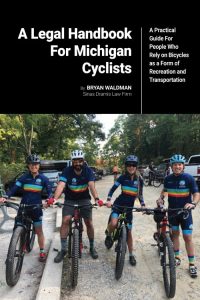In a landmark ruling, the Colorado Supreme Court struck down an ordinance enacted by the City of Black Hawk which banned bicycles on most of the city’s streets. In doing so, the Court stated that: “Bicycling is not a matter of purely local concern; rather, it is a matter of mixed state and local concern” and held that the bicycle ban violated state law.
Black Hawk, Colorado is a city that was settled in the mid-1800’s, when gold was discovered in the area by a prospector named John H. Gregory. It became part of a well-populated mining area, but by 1995, Black Hawk had only one operational mill and the population fell below 200 people. Census figures from 2010 indicate that Black Hawk had only 118 residents. However, in 1990, the city began developing casinos in an effort to bolster its struggling economy. Black Hawk now has nearly 20 separate casinos, which the Colorado Supreme Court noted is more than Atlantic City of New Jersey.
 With the development of casinos came significant motor vehicle traffic. In January of 2010, Black Hawk enacted an ordinance which prohibited bicycles on virtually all city streets. However, the ordinance also created an exception for bicycle traffic which originated in the city limits. In other words, the ordinance only prohibited cyclists from entering or passing through Black Hawk.
With the development of casinos came significant motor vehicle traffic. In January of 2010, Black Hawk enacted an ordinance which prohibited bicycles on virtually all city streets. However, the ordinance also created an exception for bicycle traffic which originated in the city limits. In other words, the ordinance only prohibited cyclists from entering or passing through Black Hawk.
On June 5, 2010, Jamie Webb, Jeffrey Hermason, and Michaleen Jeronimus were on an organized long-distance bike ride that passed through Black Hawk. The cyclists attempted to pass through the town using Gregory Street (the main street through the city), but were pulled over and cited for violating the city ordinance prohibiting bicycles. Webb, Hermason and Jeronimus fought the citations in the Black Hawk Municipal Court, arguing that ordinances were invalid, because the municipality lacked the authority to prohibit bicycles on streets, absent a suitable alternative bicycle route as provided by a state statute, which requires any municipal bike prohibition to have an alternative path within 450 feet. The municipal court ruled against the cyclists, finding that the City had the authority to ban bicycles through its “home-rule and police powers.” The cyclists appealed to the Gilpin County District Court, but the District Court agreed with the municipal court’s finding, and upheld the ordinance and the citations issued to the three cyclists.
On February 4, 2013, the Colorado Supreme Court reversed the ruling of the Gilpin County District Court. In doing so, the Supreme Court noted that bicycling is not only a matter of local concern, but is also a concern of the state and for this reason, municipal ordinances may not violate or conflict with a state statute. The Supreme Court went on to note that Colorado’s General Assembly has been conscious of the need to include bicycles as a mode of transportation since the early 1900s and has enacted legislation which “makes it clear that bicyclists are afforded all of the rights and responsibilities of other vehicles on our roadways, including being required to comply with state and municipal regulations.” Accordingly, while municipalities may regulate bicycles on local streets, they may not pass an ordinance that mandates a bicycle prohibition on city streets, unless it is accompanied by suitable alternative bike ways, as required by state statute.


